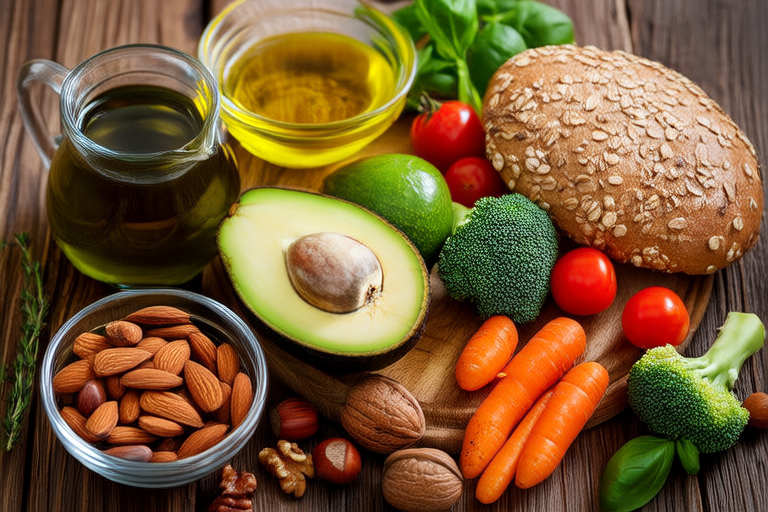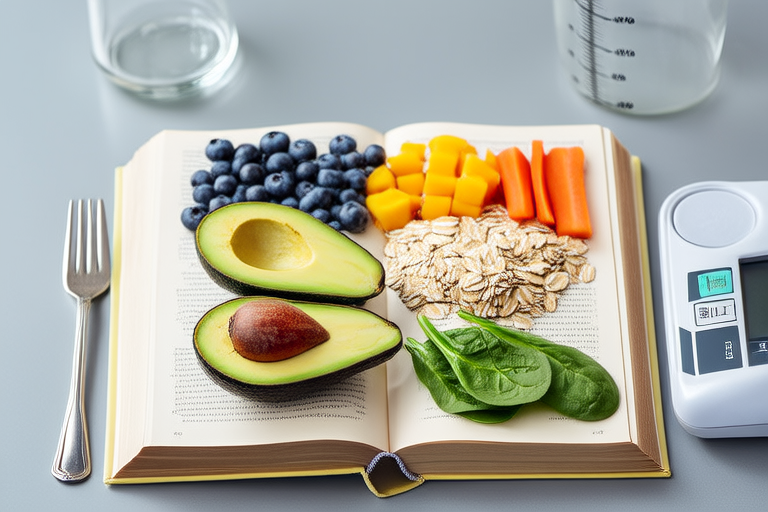Unlocking the Secrets: A Deep Dive into the Nutritional Components of Your Diet
Nutrition is the cornerstone of health and well-being, yet it often remains a misunderstood or overlooked aspect of daily life. The food we consume serves as fuel for our bodies, providing the essential building blocks needed to sustain energy, repair tissues, and support countless biological processes. In this article, we will explore the critical components of a balanced diet—macronutrients, micronutrients, hydration, fiber, and antioxidants—and their roles in maintaining optimal health. We’ll also discuss common dietary pitfalls and provide actionable tips to help you make informed choices about your nutrition.
The Role of Macronutrients
Macronutrients are the primary nutrients required by the body in large amounts. They include carbohydrates, proteins, and fats, each playing a unique role in supporting bodily functions.
Carbohydrates: The Body’s Preferred Energy Source
Carbohydrates are often labeled as “good” or “bad,” but in reality, they are a vital source of energy. When consumed, carbohydrates are broken down into glucose, which fuels the brain, muscles, and other organs. Whole grains, fruits, vegetables, and legumes are excellent sources of complex carbohydrates, which release energy slowly and help maintain stable blood sugar levels. On the other hand, refined carbohydrates, such as sugary snacks and white bread, can lead to energy spikes and crashes, making them less ideal for sustained health.
Proteins: The Building Blocks of Life
Proteins are essential for growth, repair, and maintenance of tissues. They are composed of amino acids, some of which the body cannot produce on its own and must obtain from food. High-quality protein sources include lean meats, fish, eggs, dairy products, legumes, and nuts. Proteins also play a role in enzyme production, immune function, and hormone regulation, making them indispensable for overall health.
Fats: More Than Just Energy Storage
Fats have long been vilified, but they are crucial for absorbing fat-soluble vitamins (A, D, E, and K), protecting organs, and supporting cell membrane integrity. Healthy fats, such as those found in avocados, olive oil, nuts, seeds, and fatty fish, provide essential fatty acids like omega-3s, which reduce inflammation and support heart health. It’s important to limit saturated and trans fats, commonly found in processed foods, as they can increase the risk of cardiovascular disease.
Micronutrients: The Unsung Heroes
While macronutrients supply energy, micronutrients—vitamins and minerals—are equally vital for maintaining health. Though required in smaller amounts, they play significant roles in various physiological processes.
Vitamins: Catalysts for Vital Functions
Vitamins are organic compounds that assist enzymes in chemical reactions throughout the body. For example, vitamin C boosts the immune system and promotes collagen production, while B vitamins help convert food into energy. Vitamin D supports bone health by aiding calcium absorption, and vitamin E acts as an antioxidant, protecting cells from damage. A diverse diet rich in fruits, vegetables, whole grains, and lean proteins ensures adequate intake of these essential nutrients.
Minerals: Supporting Structure and Function
Minerals are inorganic elements that contribute to structural integrity and metabolic processes. Calcium and phosphorus are critical for strong bones and teeth, while iron is necessary for oxygen transport in the blood. Magnesium supports muscle function and nerve transmission, and potassium helps regulate fluid balance and blood pressure. Consuming a variety of nutrient-dense foods, such as leafy greens, nuts, seeds, and seafood, can help meet your mineral needs.
The Importance of Hydration
Water is often overlooked as a nutritional component, yet it is fundamental to life. Every cell, tissue, and organ relies on water to function properly. Adequate hydration supports digestion, regulates body temperature, lubricates joints, and aids in the elimination of waste. While individual water needs vary based on factors like age, activity level, and climate, aiming for at least eight glasses per day is a good starting point. Incorporating water-rich foods, such as cucumbers, watermelon, and oranges, can also contribute to hydration.
Fiber: The Digestive Powerhouse
Dietary fiber, found in plant-based foods, plays a key role in digestive health. Soluble fiber, present in oats, beans, and apples, dissolves in water to form a gel-like substance that helps lower cholesterol and stabilize blood sugar levels. Insoluble fiber, found in whole grains, nuts, and vegetables, adds bulk to stool and promotes regular bowel movements. A high-fiber diet not only supports gut health but also reduces the risk of chronic diseases, including heart disease and type 2 diabetes.
Antioxidants: Defenders Against Oxidative Stress
Antioxidants are compounds that neutralize free radicals, unstable molecules that can damage cells and contribute to aging and disease. Common antioxidants include vitamins C and E, beta-carotene, and selenium. Foods rich in antioxidants, such as berries, dark chocolate, green tea, and colorful vegetables, help combat oxidative stress and inflammation. Including a variety of these foods in your diet can enhance your body’s natural defense mechanisms.
Common Dietary Pitfalls to Avoid
Even with the best intentions, it’s easy to fall into dietary traps that undermine your nutritional goals. Here are some common pitfalls to watch out for:
- Overconsumption of Processed Foods: These often contain excessive sugar, salt, unhealthy fats, and artificial additives, which can harm your health over time.
- Neglecting Portion Control: Eating large portions, even of healthy foods, can lead to weight gain and imbalance in nutrient intake.
- Skip Balanced Meals: Relying on snacks or skipping meals altogether can result in nutrient deficiencies and energy fluctuations.
- Excessive Sugar Intake: Sugary beverages and desserts can contribute to obesity, insulin resistance, and dental issues.
Practical Tips for Optimizing Nutrition
Achieving a balanced diet doesn’t have to be complicated. Here are some practical strategies to help you optimize your nutrition:
- Prioritize Whole Foods: Focus on minimally processed options like fruits, vegetables, whole grains, lean proteins, and healthy fats.
- Practice Mindful Eating: Pay attention to hunger cues, savor your food, and avoid distractions like TV or smartphones during meals.
- Plan Ahead: Prepare meals and snacks in advance to avoid last-minute unhealthy choices.
- Stay Hydrated: Carry a reusable water bottle and sip throughout the day to maintain hydration.
- Incorporate Variety: Rotate different foods to ensure a wide range of nutrients and prevent boredom.
- Listen to Your Body: Adjust portion sizes and meal timing based on your activity level and individual needs.
Conclusion
Nutrition is a powerful tool for enhancing your health and quality of life. By understanding the roles of macronutrients, micronutrients, hydration, fiber, and antioxidants, you can make informed choices that support your well-being. Avoiding common dietary pitfalls and adopting practical strategies can help you build sustainable habits. Remember, small, consistent changes often yield the most significant results. Start today by incorporating one or two of these tips into your routine, and take the first step toward unlocking the secrets of a healthier, more balanced diet.










